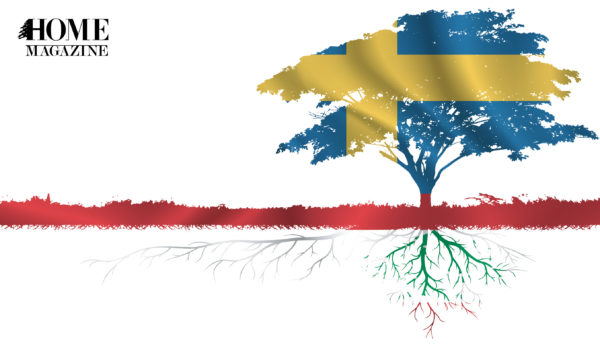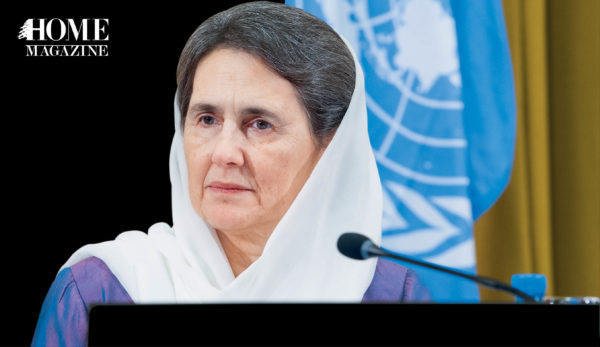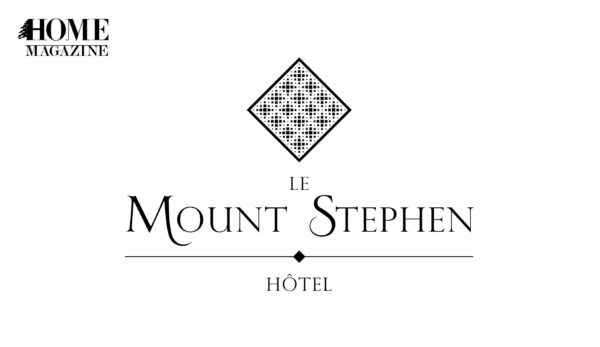Nayib Neme Arango, president of Chaid Neme Hermanos, S.A., heads one of the most powerful industrial groups in Colombia. His story started in Lebanon.
Nayib Neme Arango’s tale begins in the 1930s, when his father, Hares Neme, and uncle, Chaid Neme, from Gorfine, a village near Byblos, immigrated to Colombia. They started as a small fabric and hat shop that grew over decades into one of the most powerful industrial groups in the country.
Today the conglomerate of more than 45 different companies operates in Colombia, Ecuador and Venezuela with four divisions – industrial, construction, mining and commercial. It manufactures and trades rubber, plastics, agricultural tools, construction machinery, mining equipment and automotive parts.
The Chaid Neme Hermanos, S.A., corporation is also known for its positive impacts on the communities and countries in which it operates. So, it may not be surprising that the ambassador of Sweden recently decorated Neme with the Pole Star, a reward to non-Swedes for civic merits and services rendered to the country.
In an interview with HOME, Neme talked about inheriting the privilege and responsibility of running a major business, his views on success and his passion for the arts.
Tell us the story of your company.
My family arrived in Ocaña more than 85 years ago and began to work in commerce, then they manufactured clothing. About 10 years later, they aimed for new horizons and took a good part of their business to Barranquilla, then to Bogota, eventually expanding into auto parts.
During the 50s, my father and uncle created what is now one of the oldest auto parts plants in Colombia, Incolbest. They advertised top quality products, speedy deliveries and affordable prices. Demand for their products grew, leading them to build factories, which continue to operate today.
In the early 1980s, we created a holding company headed by Chaid Neme Hermanos. In the same calendar year, we started our export operations. We currently distribute our products to more than 30 countries. At that time, José Carlos Matamala, my brother-in-law, entered the construction field, which led us into urban planning and real estate development.
In the 90s, we realized the best way to serve our external customers was to produce in their own country. Thus, we created factories in Ecuador, Venezuela and Mexico.
How did you learn to lead?
I believe the accumulated experience, particularly working alongside my elders, is what prepared me to lead. I was fortunate to have a father who allowed me to make decisions, even though he knew some were not correct. I had to take responsibility for those mistakes. Fortunately, I believe that the successes have been more than the mistakes.
What is it like to work in the automotive industry?
What captivates me in this industry is the daily obligation to be innovative. The industry itself is constantly dynamic. To succeed in it, one must continuously make improvements to the product, its quality and its manufacturing process. The demand to create vehicles and parts that are more efficient and of lighter weight is ever present.
Something else unique in this industry is the variety of technologies and materials that must be learned. We work with glass, metals, rubbers, plastics, textiles, leather and many others.
How did the passing of your father and uncle affect you?
I never expected the effect would be so profound. I also lost my mentor and close friend during the same time. It felt as if I had lost three parents successively. I have been fortunate to have counted on not one, not two, but three exemplary men. While they did their best to prepare me, I must admit I felt they left a huge burden on my shoulders.
“I always remind myself that the end does not justify the means.”
I learned so many valuable lessons from them. The one that stands out above all others is the importance of honesty, transparency and rectitude. I always remind myself that the end does not justify the means.
How do you measure success?
Business growth figures, client retention and an increase in new clients are good indicators of success, but are not the only ones. I also measure success from the satisfaction of my work colleagues, and the impact of our business on the community and the country.
What has led to your success?
I would say I have done two things: I have dared to make mistakes and I have fulfilled my promises. Success does not happen overnight. Those who prepare are the ones who do well.
I also had the advantage of starting with the wonderful people and the good name our company has earned over the years.
Having strong competition is also key. I think of competitors as colleagues who represent an incentive to work harder. I study them with attention and learn from them; they are good teachers.
“I think of competitors as colleagues who represent an incentive to work harder. I study them with attention and learn from them.”
And I listen to employees. Employees are the ones who know best how to adjust the products. They are the ones who can provide us with ideas on how to be more efficient and more productive.
Perhaps, the important thing is to have a good team of people who are aware of the market, focused on the mission of the company and willing to persevere at the task at hand.
“When in a difficult situation, it is the least appropriate time to contemplate failure.”
Finally, I don’t give up. When in a difficult situation, it is the least appropriate time to contemplate failure. I prefer to think of it as a “complex context” and to face it with optimism and a strong desire to succeed.
What future projects will your company pursue?
As my uncle, Don Chaid, used to say, “What you did yesterday is history.” We always have to look to the future. We plan to open new markets and to merge with some companies in our industries, giving us a broader portfolio, while maintaining our position as leaders in the field. I would also like to see us become a member of the public stock exchange, giving the group ownership to thousands of people, allowing them to partake in the world market.
How does your company address its social responsibility?
We believe in education. The Neme Foundation’s fundamental task is to help people pursue higher education or technical training. At the same time, we aim to provide job opportunities in the specialties they choose.
We also work to improve schools by bringing teachers and scholars from abroad to provide examples and encourage a healthy exchange of ideas with local educators.
We also believe in the value of exposure to the arts. For this reason, we support an art exhibition and a teaching center for young children.
Tell us about Nayib Neme as a person.
God has blessed me with a wonderful family. I married an unbelievable woman with whom I have five beautiful children and two grandchildren. I thank God that I live surrounded by love, tranquility and good health. Every day I think about how to be a better person, to do things better, to grow the business and to give back to our country.
I play tennis daily, a sport that I love. I also love soccer. My team is Millonarios F.C. (Futbol Club). Following it is a daily passion.
I also enjoy attending art fairs. They fill my soul with delight. I can thank my wife, Claudia Hakim, for this appreciation of the arts I have developed. We have acquired some pieces that we, along with our children and friends value.
How do you feel about your Lebanese heritage?
I love my country, Colombia, and I love that of my ancestors, Lebanon. I am fortunate to have two HOMElands. The love that my sisters and I feel for Lebanon was instilled in us by our mother, who, although she was Colombian, deeply loved Lebanon – so much that she learned to speak Arabic and cook wonderful Lebanese food. I try to visit Lebanon at least once a year.


































 by
by